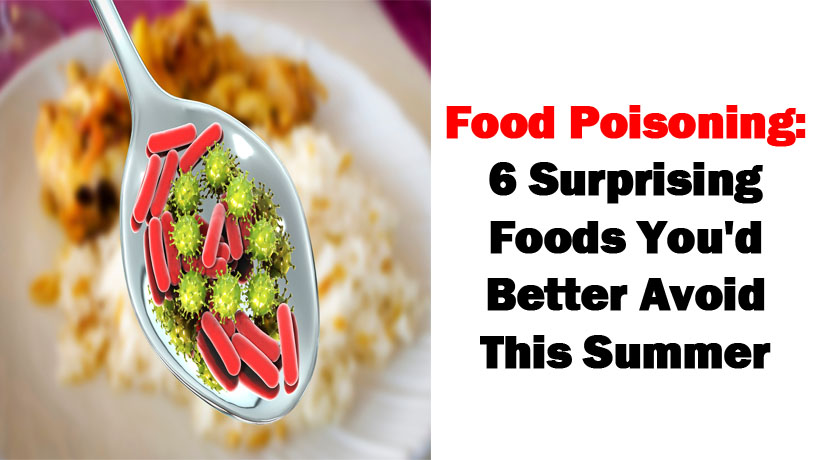Summertime is here—which means that the season of barbecues, picnics, camping trips and outdoor seating has finally arrived. Although there are endless health benefits of warm weather and time spent outdoors, these pleasures come with one great risk: food poisoning.
According to the United States Department of Agriculture, foodborne illness, also known as “food poisoning,” is more prevalent in warmer weather. The official website explains, “The reason why is twofold: bacteria multiply faster in warmer temperatures, and preparing food outdoors makes safe food handling more difficult.” Foodborne bacteria grow fastest at temperatures between 90 to 110 degrees Fahrenheit (32 to 43 degrees Celsius) and in moist conditions. During the summer months, the warmer temperatures and higher humidity are the perfect breeding grounds for bacterial growth. Moreover, when cooking outdoors, the safety of indoor kitchens such as temperature controlled cooking, refrigeration and convenient washing facilities are usually hard to find.
Each year, an estimated one in six people living in the United States develop food poisoning. This summer, don’t let that be you! To steer clear of illness, here are six surprising foods better left avoided (or handled really, really carefully).
Hamburgers and charred meats
Undercooked meats can put you at great risk for foodborne illnesses. Make sure that all beef is cooked to an internal temperature of at least 160 degrees to kill E. coli. Additionally, according to the American Institute for Cancer Research (AICR), grilling meats has been shown to form cancer-causing substances. But don’t fret yet—studies have shown that harmful contents can be reduced when the meat is marinated for at least half an hour with a mixture of vinegar, lemon juice or wine with herbs and spices.
Raw shellfish
By eating raw shellfish, especially oysters, you are at risk of contracting the bacteria Vibrio parahaemolyticus and Vibrio vulnificus. Both pathogens can cause diarrhea, vomiting and abdominal pain. Take extra precaution to choose safe and healthy seafood this summer.
Chicken
Chicken is oftentimes contaminated with Salmonella and needs to be thoroughly cooked to kill the bacteria. Even when fixing up food outdoors, use a thermometer when preparing chicken to ensure that it has been heated to a safe temperature. Furthermore, be mindful of effective storage practices and keep raw chicken away from other foods to avoid cross-contamination.
Sprouts
Although delicious on salads and burgers, sprouts might bring about unforeseen consequences in the summer months. Seeds and beans benefit from warm and humid conditions, which also happen to be ideal conditions for the growth of bacteria, including Salmonella, Listeria and E. coli.
Salad greens
There are various ways greens can be contaminated: by poor conditions or dirty water at the farm, by unhygienic preparation or by cross-contamination at home (for example, by using the same cutting board for raw meat and salad). Effectively wash greens by placing them in a large colander under your faucet or by using a salad spinner.
Leftovers
Leftovers can be particularly tricky to handle properly over the summer. If the weather outside is hot, food is often exposed to more dangerous temperatures. In addition, consider how long the items have been left out overall. If it’s been around two to four hours or longer, especially during the hottest part of the summer day, it might be time to trash your meal. No matter how delicious it might have been, the food probably isn’t worth spending the next few sunny days stuck in bed.
Sources:
https://www.fsis.usda.gov/wps/portal/fsis/topics/food-safety-education/get-answers/food-safety-fact-sheets/foodborne-illness-and-disease/foodborne-illness-peaks-in-summer
http://www.health.com/health/gallery/0,,20930813,00.html#summer-foods-that-can-make-you-sick–0
https://blogs.cdc.gov/publichealthmatters/2017/07/avoid-food-poisoning-during-summer-picnics



